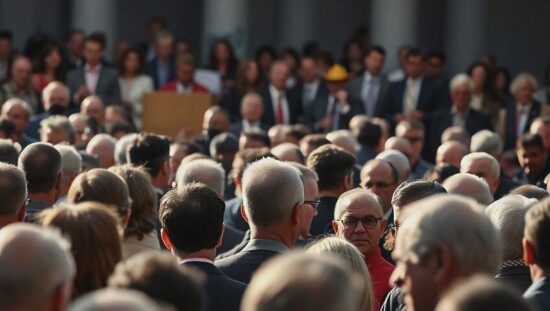The Social Democratic Party (SPD) in North Rhine-Westphalia (NRW), Germany’s most populous state, is attempting a significant course correction after years of electoral decline. A unanimous decision by the party’s non-public state committee, representing all 54 sub-organizations, has resulted in a position paper titled “We Have Understood: Time for Honesty and Change”. This marks a stark recognition of the party’s waning support and aims to revitalize its standing ahead of the 2027 state election.
Sarah Philipp, the state leader, acknowledged the sobering impact of recent electoral results, describing them as a “clear wake-up call”. The paper’s tone is notably self-critical, an uncommon display from a party that has historically dominated NRW politics. It openly admits that the party is losing support not just because of the rise of rival parties, but because voters have lost faith.
Achim Post, co-state chairman, emphasized that credibility can only be earned by demonstrating tangible results in areas impacting everyday citizens – classrooms, construction sites, administration and local neighborhoods.
The strategy shift appears to involve a significant learning process, with the party looking to successful mayors in cities like Herne and Hamm, who have defied the negative trend at the state and federal levels. The position paper highlights a need to adapt the party’s style and programmatic approach to regain lost trust. Specifically, the SPD is seeking to re-emphasize work and opportunity as central tenets of their platform, stating their commitment to “every job and equal chances for every child.
Furthermore, seeking to claw back ground on issues of security and order, the paper signals a move towards sharpening the SPD profile on these fronts, addressing concerns regarding safety, cleanliness and integration.
The position paper outlines plans to develop 27 concrete solutions tailored for the 2027 election, recognizing that the party currently polls at only 22 percent in the state, trailing the CDU and facing a worrying challenge from the far-right AfD, particularly in traditional SPD strongholds like Gelsenkirchen. The symbolic loss of Dortmund to a future CDU mayor, a city once described as the “heart chamber” of German social democracy, underscores the depth of the party’s predicament.
Criticism from within the party’s own base has proven influential. Duisburg’s long-serving mayor, Sören Link, recently lamented the party’s growing disconnect from its working-class constituency, suggesting a misplaced focus on perceived injustices for recipients of benefits rather than the concerns of those who fund the social state. This sentiment appears to be resonating, potentially bolstering Federal Minister for Labour and Social Affairs, Bärbel Bas, as she initiates social reforms in Berlin, despite her association with the party’s left wing. The recent agreement with the conservative CDU on reforming welfare provisions, including stricter sanctions for job refusals, demonstrates a move away from the longstanding “Hartz IV trauma” and a renewed focus on the interests of middle-income earners.
The party’s newly adopted course correction promises to significantly reshape the SPD’s approach to governance and may prove to be a crucial factor in their bid to reconnect with voters by 2027. The ultimate goal, as stated in the position paper, is to earn the sentiment: “The SPD is there for me again, not just in words, but in my everyday life”.





